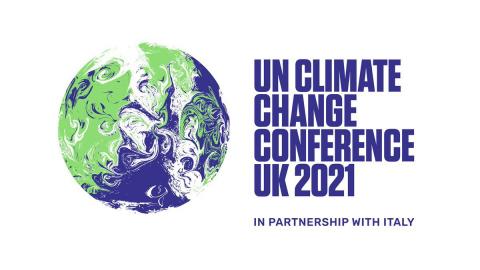Four years ago, Dr. Thomas Lovejoy and Frank Sesno, both Board Directors of the Global Council for Science and the Environment (GCSE), asked Harrison Watson, now a Ph.D. student at Princeton University studying carbon and nutrient cycling, why he likes science so much. Harrison shared with clarity and force, “Science is my superpower, it makes me feel like I can take on any challenge and solve it.”
 Just one month out from the COP26 summit, which will bring parties together to accelerate action towards the goals of the Paris Agreement and the UN Framework Convention on Climate Change, the urgency to lean-in to science as a superpower has never been greater. Science provided us with the glaring warnings of the most recent report from the Intergovernmental Panel on Climate Change, released last month. And science, together with Indigenous knowledge systems, will guide global decisions for the planet in adapting to and mitigating impacts of climate change. These decisions will affect how we grow food, develop alternative energy sources, build infrastructure, and protect biodiversity. Science, technology, and innovation provide the tools we need to effectively reduce the greenhouse gas emissions causing climate change, and also give us the abilities to pursue the future we choose that is clean, equitable, sustainable and regenerative.
Just one month out from the COP26 summit, which will bring parties together to accelerate action towards the goals of the Paris Agreement and the UN Framework Convention on Climate Change, the urgency to lean-in to science as a superpower has never been greater. Science provided us with the glaring warnings of the most recent report from the Intergovernmental Panel on Climate Change, released last month. And science, together with Indigenous knowledge systems, will guide global decisions for the planet in adapting to and mitigating impacts of climate change. These decisions will affect how we grow food, develop alternative energy sources, build infrastructure, and protect biodiversity. Science, technology, and innovation provide the tools we need to effectively reduce the greenhouse gas emissions causing climate change, and also give us the abilities to pursue the future we choose that is clean, equitable, sustainable and regenerative.
Elevating the role of science in decision-making has the power to be transformative, but to do so will require revolutionizing old models of the scientific enterprise. Over the past several months, several thoughtful articles, essays, and reports have been published that examine the role of science as we move into this third decade of the 21st century, enduring a global pandemic layered on the sustained, devastating impacts of climate change. Issues in Science and Technology, for example, is publishing a year-long feature on the “The Next 75 Years of Science Policy,” highlighting a range of proposals on how to structure the resources of science to enable the best possible future.
One recent piece focuses on Imagining the Role of the Research University Anew, exploring ways that the value of the academic enterprise can be best harnessed to help build a resilient future. Authors assert that research universities have a responsibility to play a greater role in helping society address and plan for the opportunities and challenges that lie ahead and that they can accomplish this by becoming more integrated as trusted partners in the wider ecosystem of governments, companies, NGOs, and local communities.
Another report published last week by the the International Science Council and the Global Forum of Funders “Unleashing Science: Delivering Missions for Sustainability” asserts that to get on track to achieve the 2030 United Nations Sustainable Development Goals will require intense and focused effort by scientists and decision-makers working together, including scientific funders and stakeholders from government, the private sector, and civil society to identify gaps in the current systems and chart a path forward, one that includes models that prioritize global collaboration and producing actionable knowledge and solutions.
The goal of harnessing the untapped potential of the academic enterprise in service to decision makers lies at the heart of the mission and work of GCSE. Our community of scientists, decision makers, subject matter experts, innovators, and leaders representing all dimensions of diversity, recognize that science is a superpower. We owe it to the planet and to ourselves to realize its full potential.
In the words of COP26 President-Designate H.E. Alok Sharma, “Whether future generations look back at this time with admiration or despair, depends entirely on our ability to seize this moment. Let’s seize it together.”